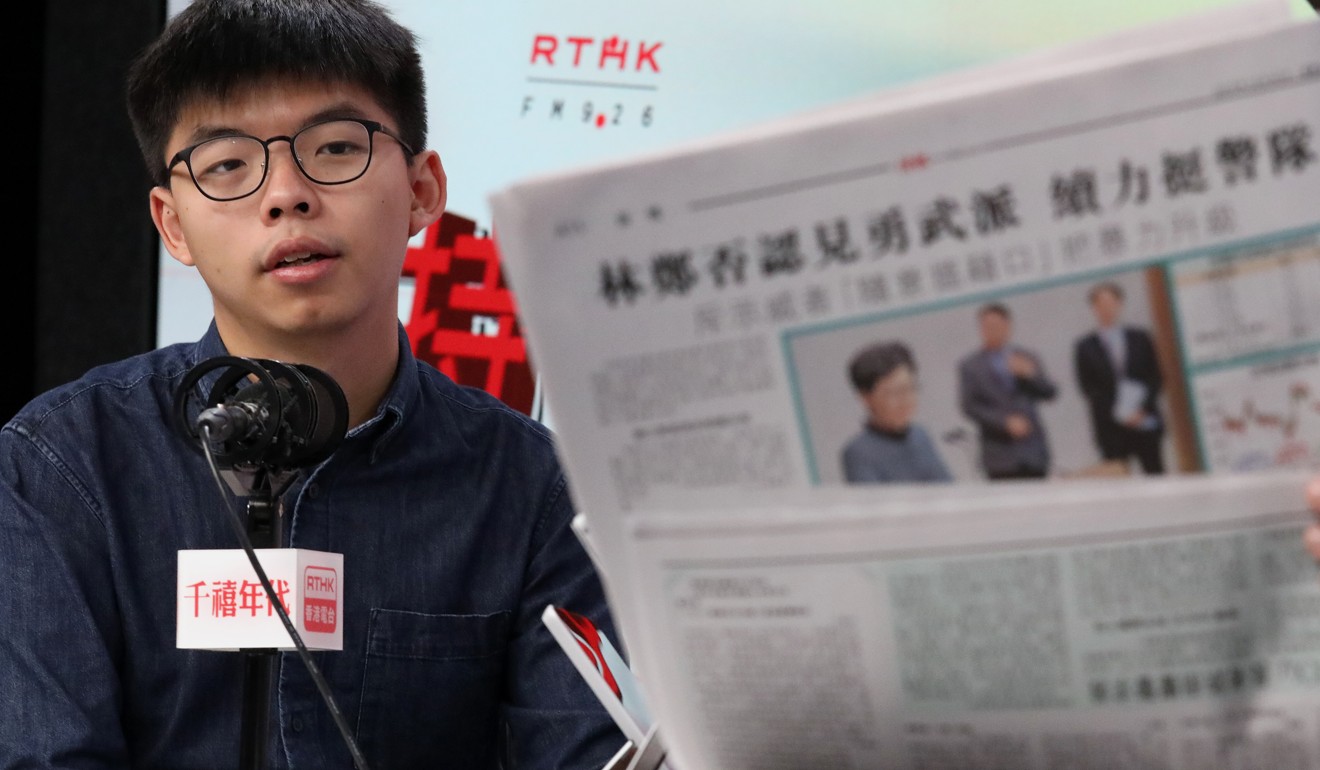
Hong Kong district council elections: will protests move indifferent voters to come out and support pan-dem candidates?
- Record number of pan-dem candidates bank on a stronger turnout of voters this month
- Joshua Wong’s disqualification may help pan-dem camp sweep district polls, analysts say

Interior designer Edwin Pau Siu-ting, 34, cannot remember for certain how he spent Sunday, 22 November 2015 – the day when Hong Kong’s district council elections were last held.
“I must have taken my two kids to the park, had dinner, and walked the dog as usual,” says Pau, who lives in Kowloon Tong.
All he knows for sure is that he did not bother to vote. “I just did not think the district council election was important enough,” he says.
He cannot even name the district councillor for his area.
His indifference is not uncommon, especially among Hong Kong’s middle-class voters who do not pay much attention to what goes on at the 18 district councils.

In the wake of ongoing protests in Hong Kong, this year’s district council elections on November 24 have been shaping up to be different, with more pro-democracy candidates stepping forward to challenge pro-establishment councillors who are currently the majority in all councils.
Then came news on Tuesday, that pro-democracy activist Joshua Wong Chi-fung could not contest the elections, after an electoral officer refused to believe he had changed his position on seeking independence for Hong Kong.
Wong, who was a teenage student when he led 2014’s Occupy protests which saw parts of the city shut down for 79 days, is the only candidate disqualified from this month’s polls.
Pau and other supporters of the pan-democracy camp say the protests and Wong’s disqualification have made them determined to come out and vote this year.
City Weekend explains what the district councils do, how the system works, what councillors accomplish and why political analysts expect this year’s polls to be significant.
How does the system of district councils run?
Hong Kong is divided into 18 district councils with a total of 452 constituencies. The largest district is Yuen Long in the New Territories, with 45 district councillors, and the smallest, Wan Chai, with only 13. Pro-establishment councillors currently outnumber those from the pan-democracy camp in all councils. In Sha Tin, there are 19 councillors from each camp and one centrist member.
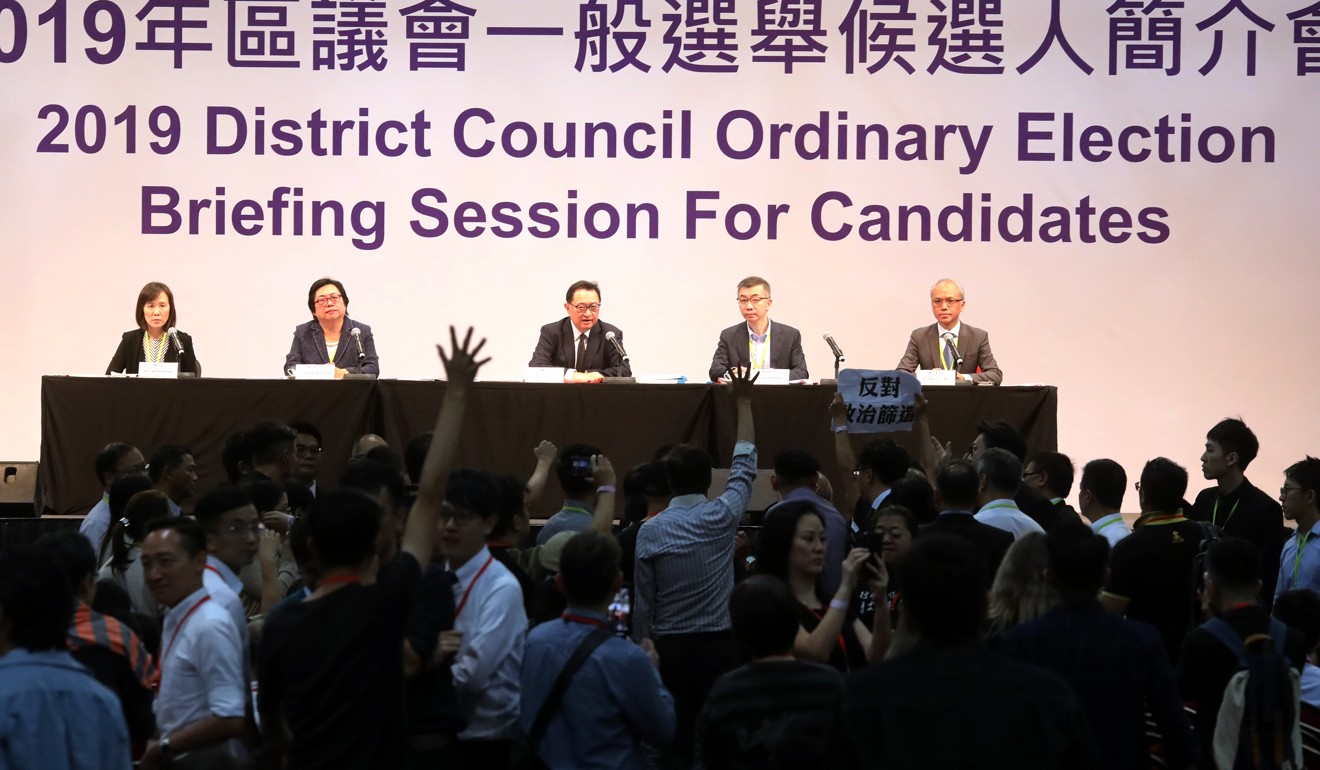
The district councils came into being after the Legislative Council passed a bill in 1999 to create these local bodies to advise the government on matters concerning the people’s well-being, the provision of public facilities, the use of public funds on community activities and so on.
The councils have little formal power beyond their consultative role. They meet regularly to discuss matters concerning their areas, and are limited to approving minor improvement works with a maximum budget of HK$30 million per project.
Elections to the district councils are held every four years, with candidates campaigning on local issues concerning their own constituencies within each district.
Councillors receive a monthly pay of HK$33,950 (US$4,330) plus other allowances. They are not expected to devote themselves full time to their constituencies, but some do.
Who can vote in district council elections?
Hongkongers over 18 years old are eligible to vote, and in this year’s elections there are 4.13 million registered voters. This is an increase from the 3.69 million who were eligible to vote in the last polls, held in 2015.
However, many Hongkongers consider the district council elections unimportant because the councils do not have much real power, and this is reflected in the low turnout at the polls.
In 2015, the turnout of 47 per cent was considered a historic high, compared with 41 per cent in 2011 and just 39 per cent in 2007.
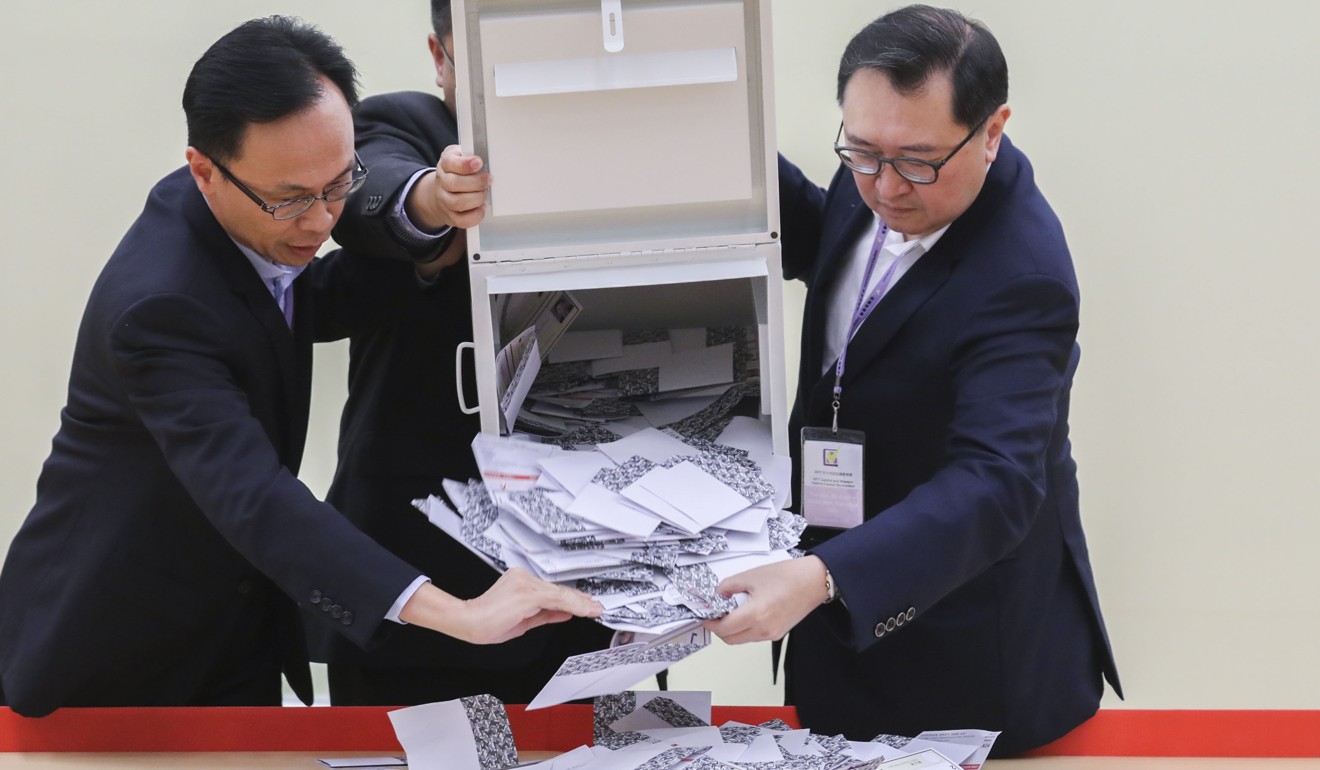
What clout do district councillors have?
District councillors are the first to admit that their role is mainly consultative and that they have little influence on government policy. A common complaint among them is that officials routinely ignore their letters about district problems and pay little attention even to suggestions for improvements.
However, the councils are considered an important battleground for regional influence.
What is especially significant is that district councillors have 117 seats on the exclusive committee of about 1,200 people who get to select Hong Kong’s chief executive.
The camp with the most district councillors gets all 117 seats on the committee. If pan-democratic candidates win big in this month’s polls, their prize will include being able to influence the outcome of the next election for Hong Kong’s leader.
What about that statue of an uncooked goose?
Many Hongkongers feel some of the work done by district councils is insignificant to the point of being laughable.
In 2013, then chief executive Leung Chun-ying announced a scheme that gave each district council HK$100 million for community improvement projects.
Some of the ideas tossed up sparked controversy and ridicule. For example, the Sham Tseng district council decided to use more than HK$700,000 to erect a giant statue of a goose as a symbol for the coastal community which is famous for its roast goose restaurants.
The project was slammed as a waste of money, with critics saying the statue looked like an uncooked goose, definitely not roasted, and calling it an ugly piece of art.
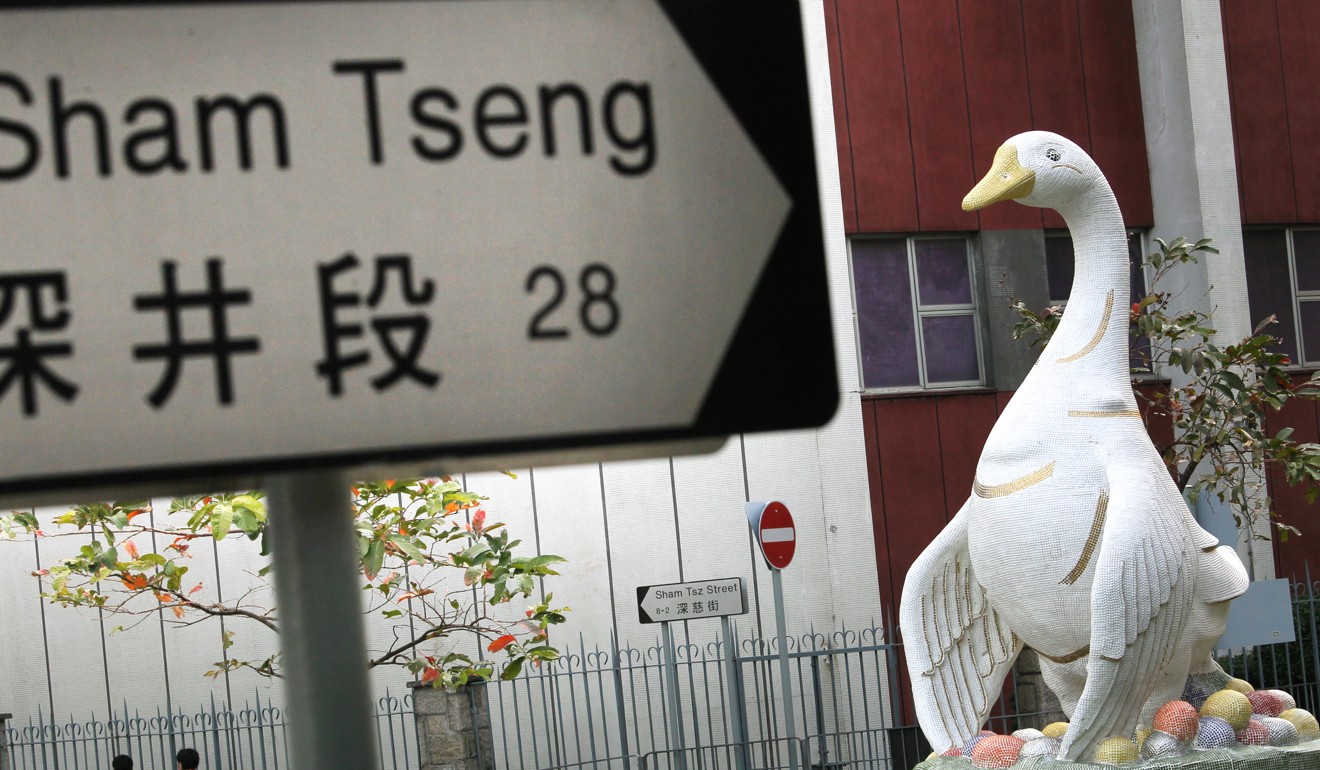
Another project, to build rain shelters in Quarry Bay, cost HK$210,000 but failed to keep people dry. The list goes on.
If district council elections are in the air, the Cantonese phrase ‘se zaai beng zung’ will pop up, usually to describe pro-establishment councillors. It translates literally as “snake feasts, vegetarian feasts, mooncakes and rice dumplings”, and refers to freebies these councillors are known to hand out to voters to win their support.
The camp says it also means its councillors have been more resourceful in doing community work.
How are November’s elections unusual?
With anti-government protests in their fifth month, the pan-democratic camp has launched its strongest challenge ever to sweep the polls. Traditionally, a highly politicised environment tends to be good for the pan-democratic camp.
The pro-establishment camp is worried, and has complained that some candidates’ offices have been vandalised and their supporters have been harassed. Some businesses have asked pro-establishment politicians not to paste election posters on their premises, fearing a backlash.
Some in the pro-establishment camp sense that public sentiment has changed so much that voters are not interested in listening to candidates talk about the usual issues raised at election time.
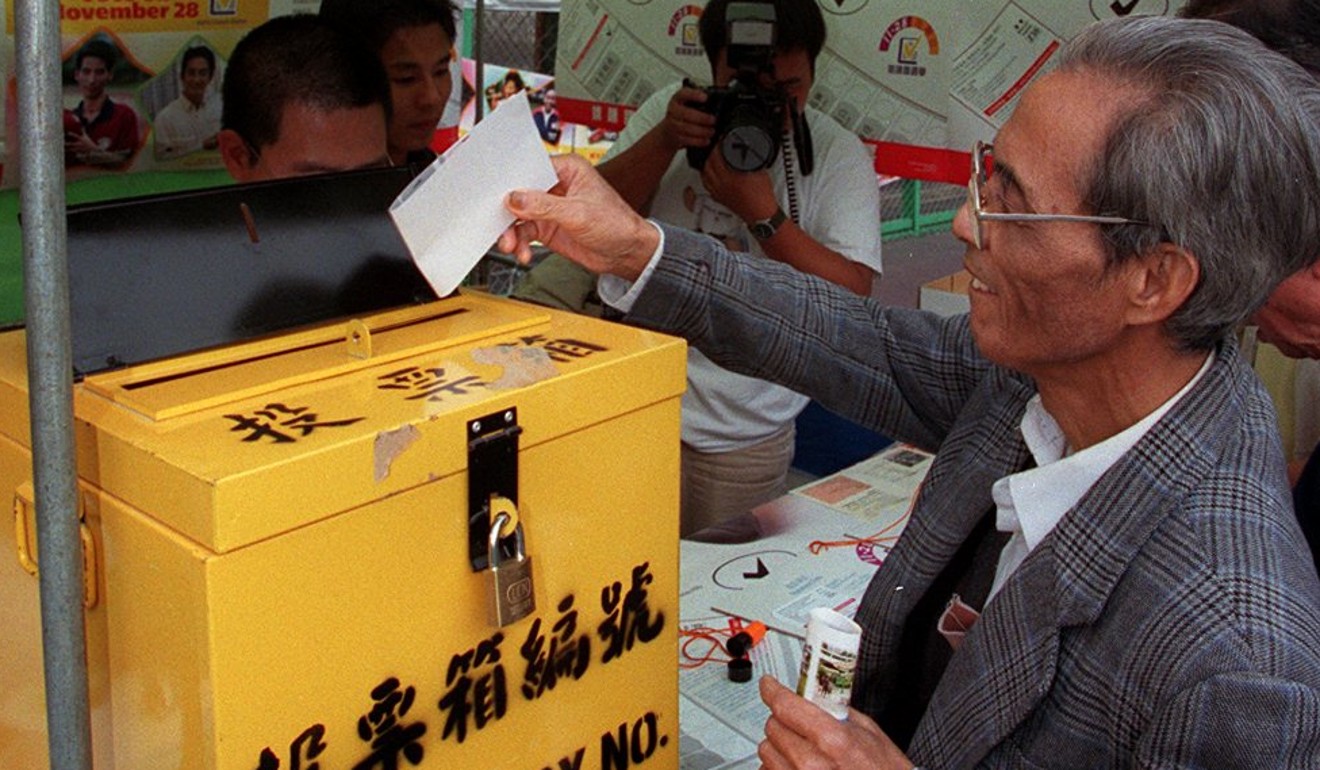
Ma Ngok, a political scholar at Chinese University, believes the polls ban on Wong, will help pro-democracy candidates. “Although the ban is kind of expected, it still stirs up anger among voters,” he says.
The latest survey conducted by Chinese University’s Centre for Communication and Public Opinion Survey last month found the proportion of Hongkongers who identified themselves as pro-democracy supporters had risen since the protests began in June.
Some 44.5 per cent and 13.6 per cent of 751 respondents said they were from the pro-democracy and localist camps respectively, up from 27.9 per cent and 5.7 per cent in March. Only 6 per cent said they leaned towards the pro-establishment bloc, a significant drop from 13 per cent in March.
Additional reporting by Kimmy Chung